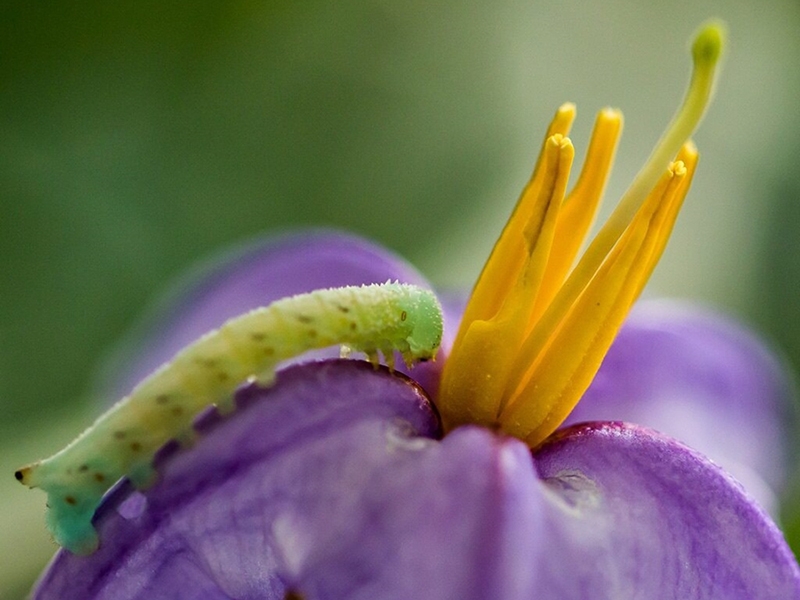
When it comes to mowing the invasive weed Silverleaf nightshade, two recent studies found that less is more.
The latest episode of Food, Farms & Forests dives deep into the challenges posed by the poisonous weed in America and throughout the world. Rupesh Kariyat, an associate professor in the Department of Entomology and Plant Pathology, explains the results of the studies that investigated how continuous mowing impacts Silverleaf nightshade's growth and defense mechanisms. The studies suggest continuous mowing can inadvertently strengthen silverleaf nightshade, making it more resilient and harder to control.
Silverleaf nightshade is part of the Solanaceae family, which includes plants like tomatoes and tobacco.
The most recent study, titled "Continuous mowing differentially affects floral defenses in the noxious and invasive weed Solanum elaeagnifolium in its native range," was led by Kariyat's graduate student Alejandro Vasquez. The results showed that flowers on frequently mowed plants were smaller and had higher spine density, making them harder for insects to access and consume.
The episode can be found in the player above or by visiting the Food, Farms & Forests page. The podcast is also available on Apple Podcasts, Spotify and YouTube Music.
Kariyat conducts research for the Arkansas Agricultural Experiment Station, the research arm of the U of A System Division of Agriculture. He also performs outreach activities through the Division of Agriculture's Cooperative Extension Service and teaches classes through the Dale Bumpers College of Agricultural, Food and Life Sciences at the U of A.
About Food, Farms & Forests: The Food, Farms & Forests podcast explores the latest food, fiber and forestry research from the Arkansas Agricultural Experiment Station. Scientists with the University of Arkansas System Division of Agriculture share their scientific discoveries and innovations in the food and agriculture industries, explaining the methods and purpose behind their work.
About the Division of Agriculture: The University of Arkansas System Division of Agriculture's mission is to strengthen agriculture, communities, and families by connecting trusted research to the adoption of best practices. Through the Agricultural Experiment Station and the Cooperative Extension Service, the Division of Agriculture conducts research and extension work within the nation's historic land grant education system. The Division of Agriculture is one of 20 entities within the University of Arkansas System. It has offices in all 75 counties in Arkansas and faculty on five system campuses. The University of Arkansas System Division of Agriculture offers all its Extension and Research programs and services without regard to race, color, sex, gender identity, sexual orientation, national origin, religion, age, disability, marital or veteran status, genetic information, or any other legally protected status, and is an Affirmative Action/Equal Opportunity Employer.
Topics
Contacts
Jenifer Fouch, content writer and communications specialist
Arkansas Agricultural Experiment Station
479-502-9732, jfouch@uark.edu